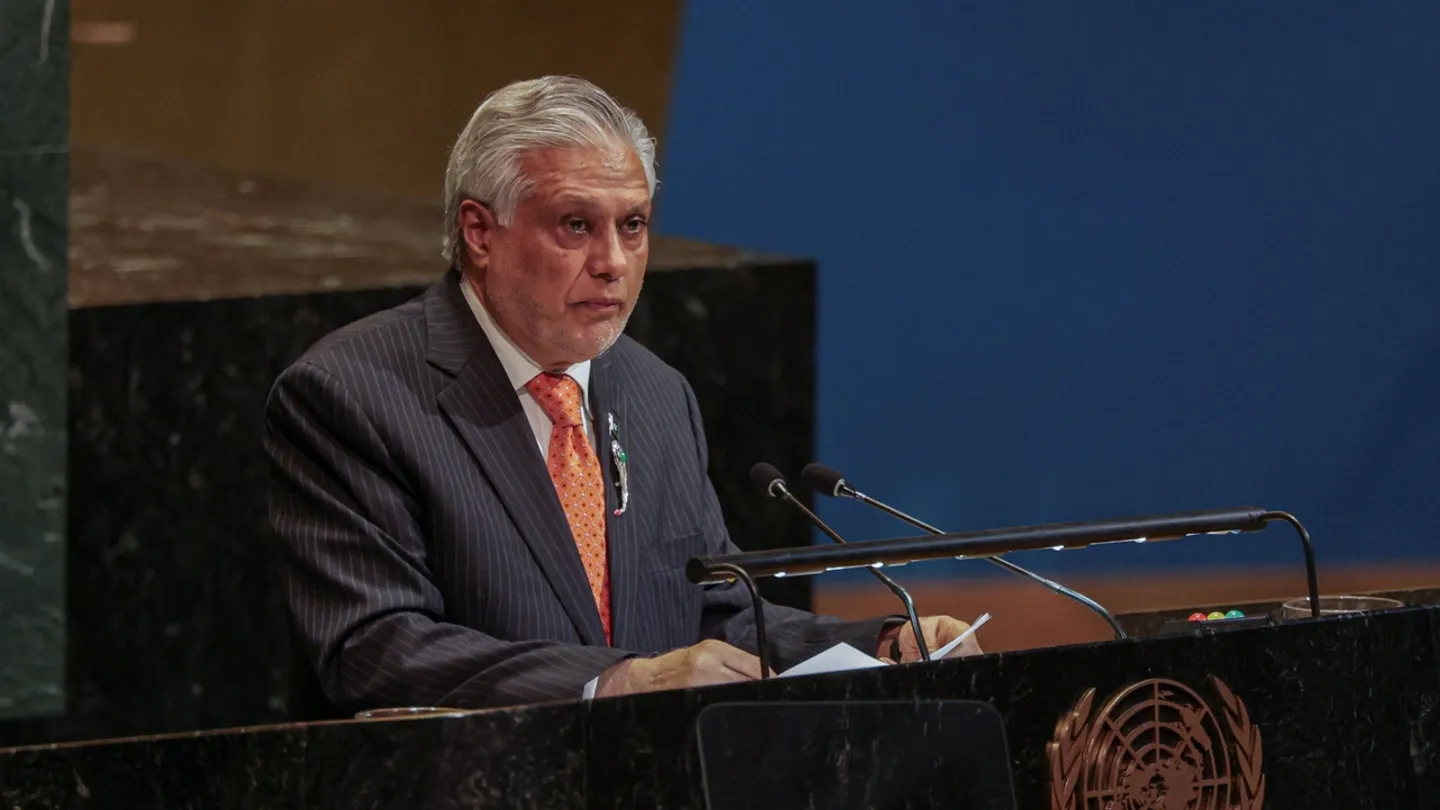Pakistan’s Foreign Minister and Deputy Prime Minister Ishaq Dar has publicly distanced Islamabad from the U.S. 20-point Gaza peace plan, declaring in Parliament that the version released by President Donald Trump does not reflect the draft presented to him and other Muslim-majority countries. Dar said that “some changes have been made in it, in the draft we had,” and emphasized the plan in its published form is “not ours.”
According to Dar, Pakistan joined a group of eight Muslim-majority nations—including Saudi Arabia, UAE, Qatar, Egypt, Jordan, Turkey, Indonesia, and Pakistan itself—in submitting a consensus draft during meetings with U.S. officials. That Muslim nations’ draft called for a full Israeli withdrawal from Gaza and for a peace process anchored in the two-state solution. By contrast, Trump’s published 20-point plan envisages only a staged or partial withdrawal by Israel, tied to conditions such as the release of hostages and Hamas disarmament.
Dar said that priorities in the Muslim nations’ original draft included securing a ceasefire, enabling unimpeded humanitarian aid to Gaza, and preventing forced displacement of civilians. He said these were either diluted or modified in Trump’s public version.
The discrepancy has provoked political debate in Pakistan. The country’s Prime Minister, Shehbaz Sharif, had earlier expressed support for the broader peace roadmap, but Dar’s clarification marks a reversal—or at least a qualification—of that stance. Dar asserted that Pakistan will insist that “key areas” missing from the current public version must be addressed for any peace plan to be acceptable.





